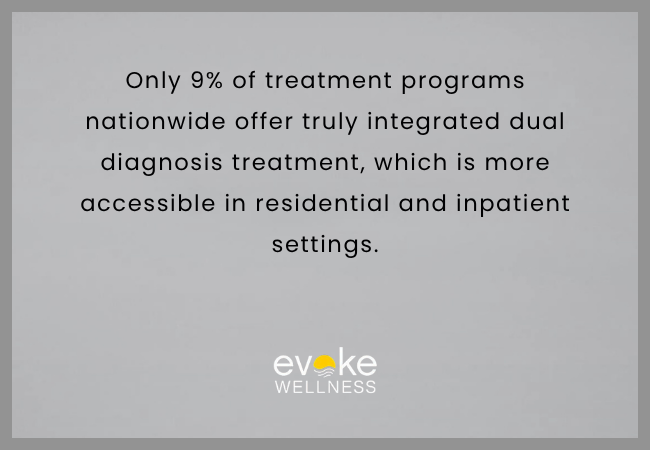When most people think of behavioral health, the first thing that often comes to mind is mental illness—conditions like depression, anxiety, or bipolar disorder. But behavioral health is far more comprehensive. It involves the full spectrum of how human beings think, feel, behave, and relate to the world around them. Behavioral health includes mental illnesses, but it also encompasses substance use disorders, emotional dysregulation, trauma, and the ways our behaviors impact our overall well-being.
At Evoke Wellness Ohio, we understand that healing must go deeper than symptom control. Behavioral health requires treating the whole person—mind, body, and spirit—and creating a path toward lifelong wellness, stability, and hope.
Defining Behavioral Health in a Broader Context
Behavioral health is often misunderstood or misrepresented as a synonym for mental illness. While mental illness is an important component, behavioral health refers more broadly to patterns of behavior, emotional functioning, and the habits that influence physical and psychological well-being. It includes how individuals handle stress, how they relate to others, how they make decisions, and how they manage emotions.
In this broader definition, behavioral health covers a wide array of concerns that may not meet diagnostic criteria for a mental health disorder but still deeply affect a person’s quality of life. These concerns can include chronic stress, poor coping mechanisms, substance misuse, or unresolved trauma. Addressing behavioral health holistically allows individuals to develop resilience, manage adversity, and engage more fully in their lives.
Mental Illness Is Only One Piece of the Puzzle
Mental illnesses such as major depressive disorder, schizophrenia, or post-traumatic stress disorder are significant and require professional treatment. However, limiting behavioral health discussions to these conditions excludes the many individuals who may not meet diagnostic criteria but still struggle to function effectively. These individuals might experience persistent sadness, mood swings, irritability, or difficulty managing interpersonal relationships.
Behavioral health treatment seeks to uncover the roots of these issues—whether they are tied to past trauma, environmental stressors, substance use, or unresolved emotional conflict. In doing so, it allows for more personalized and impactful care that aligns with an individual’s unique needs and life experiences.
The Intersection of Behavior, Emotion, and Health
Our behaviors—whether conscious or unconscious—have a profound impact on our mental and physical health. Behaviors such as sleep patterns, exercise, nutrition, substance use, and how we communicate with others all contribute to our overall well-being. Emotional health plays a role too; repressed anger, unmanaged anxiety, and chronic sadness can erode a person’s ability to function over time.
For this reason, effective behavioral health treatment must address not only mental health diagnoses but also the behaviors and thought patterns that contribute to dysfunction. By integrating therapeutic techniques such as Cognitive Behavioral Therapy (CBT), mindfulness practices, and trauma-informed care, patients can reshape the way they respond to challenges and create healthier coping strategies.
The Role of Substance Use in Behavioral Health
Substance use disorders are a major component of behavioral health. Often, individuals turn to drugs or alcohol as a form of escape, self-medication, or emotional regulation. Over time, this behavior can lead to dependency and worsen existing mental health issues.
What makes substance use particularly complex is its deep entanglement with behavioral patterns and emotional regulation. It’s not enough to remove the substance; treatment must also explore why the behavior developed and help individuals build a healthier internal system. This is especially critical for individuals with co-occurring disorders, who benefit from integrated treatment models like a Dual Diagnosis Treatment Program in Ohio, where both the mental illness and substance use are treated simultaneously.
Addressing Trauma Through Behavioral Health
Trauma, whether experienced in childhood or adulthood, leaves a profound impact on emotional and behavioral functioning. Many people struggle with hypervigilance, dissociation, emotional numbness, or explosive anger—all rooted in past trauma. These patterns often develop as survival mechanisms but can become deeply destructive over time.
Behavioral health treatment centers are increasingly trauma-informed, recognizing the lasting impact of traumatic experiences. Therapeutic modalities like Eye Movement Desensitization and Reprocessing (EMDR), trauma-focused CBT, and somatic therapies are used to help individuals process past pain in a safe, supportive environment. Healing from trauma is essential for long-term recovery, and behavioral health is one of the few areas of healthcare that takes this healing seriously.
Building a Personalized Treatment Path
There is no one-size-fits-all approach to behavioral health care. Every individual arrives with a unique combination of life experiences, emotional needs, and behavioral challenges. That’s why personalized care is critical to long-term success.
A Residential Treatment Center in Ohio provides individuals with the time, space, and therapeutic structure to begin deep emotional work. These centers offer a safe, supportive environment where clients can temporarily step away from daily stressors and focus entirely on healing. With access to 24-hour clinical support, individual and group therapy, and holistic wellness services, residential care can be a powerful reset for individuals who need intensive behavioral health treatment.
When Behavioral Health and Medical Needs Overlap
There are times when behavioral and medical needs overlap, particularly during detoxification or psychiatric stabilization. Unmanaged withdrawal symptoms, psychosis, or suicidal ideation can pose serious medical risks if not properly treated.
That’s where facilities like a Medical Detox Center in Ohio come into play. These centers provide clinical supervision and medical support to ensure that the detox process is safe, effective, and as comfortable as possible. Medical detox lays the foundation for further behavioral health treatment by clearing the body of substances and stabilizing the patient before intensive therapy begins.
Community, Connection, and Long-Term Recovery
Healing does not happen in isolation. One of the most significant contributors to lasting behavioral health recovery is a sense of community. Individuals who are connected to others—through group therapy, peer support, or family systems—are more likely to maintain progress and avoid relapse.
Behavioral health programs focus heavily on building these connections. Group therapy fosters shared learning and accountability, while family therapy helps mend damaged relationships and create healthier communication patterns. Even after formal treatment ends, many individuals benefit from alumni groups and outpatient follow-up services that offer ongoing connection and support.
Behavioral Health and Life Skills Development
Another important aspect of behavioral health care is helping individuals develop the skills they need to thrive in daily life. Many people struggling with behavioral health challenges have never been taught how to manage emotions, communicate assertively, or set healthy boundaries. Others may have lost touch with their interests, goals, and self-worth after years of living in survival mode.
Treatment focuses on more than symptom relief—it aims to help people rediscover purpose, rebuild self-esteem, and reengage with the world in a meaningful way. This life skills development is essential for preventing relapse and creating a foundation for long-term wellness.
Why Choose Us
At Evoke Wellness Ohio, we understand that behavioral health is about much more than diagnosing and treating illness. It’s about restoring hope, rebuilding lives, and helping individuals reconnect with themselves and the people around them. We are proud to offer a full continuum of care, including the Mental Health Treatment Center in Ohio, which delivers comprehensive, evidence-based care to meet the needs of individuals at every stage of recovery.
Our team is composed of experienced professionals who provide compassionate, individualized care in a supportive, judgment-free environment. Whether you’re just starting your healing journey or continuing work you began elsewhere, our programs are designed to meet you where you are and walk with you every step of the way.
Conclusion
Understanding behavioral health means looking beyond labels and symptoms. It means seeing the whole person—acknowledging their pain, their history, their strengths, and their potential. Behavioral health care is about transformation. It is about helping people reclaim control over their lives and develop the tools they need to thrive.
We are here to support that journey. If you or a loved one is struggling, know that help is available and healing is possible. Our comprehensive approach to wellness, combined with compassionate care, ensures that you receive the support you need at every level of recovery. We offer a variety of personalized services through our Addiction Treatment Programs in Ohio, helping individuals build strong foundations for long-term recovery in a supportive environment. We invite you to reach out to us today at 866-430-9267 to begin your path to wellness.
Frequently Asked Questions (FAQs)
What is the difference between mental health and behavioral health?
Mental health focuses on emotional and psychological well-being, while behavioral health includes both mental health and the impact of behaviors like substance use.
Why is behavioral health important in addiction recovery?
Behavioral health addresses the root causes of addiction, helping individuals build coping skills, resilience, and strategies to prevent relapse.
What services are offered at a behavioral health treatment center?
Services may include therapy, medication management, dual diagnosis care, detox, and long-term rehabilitation depending on individual needs.
Can behavioral health conditions be treated effectively?
Yes, with personalized treatment plans, therapy, and ongoing support, many people experience significant improvements and long-term recovery.
How do I know if I or someone I love needs behavioral health care?
If daily functioning is impacted by emotional distress, substance use, or harmful behaviors, seeking help from professionals is a proactive first step.



